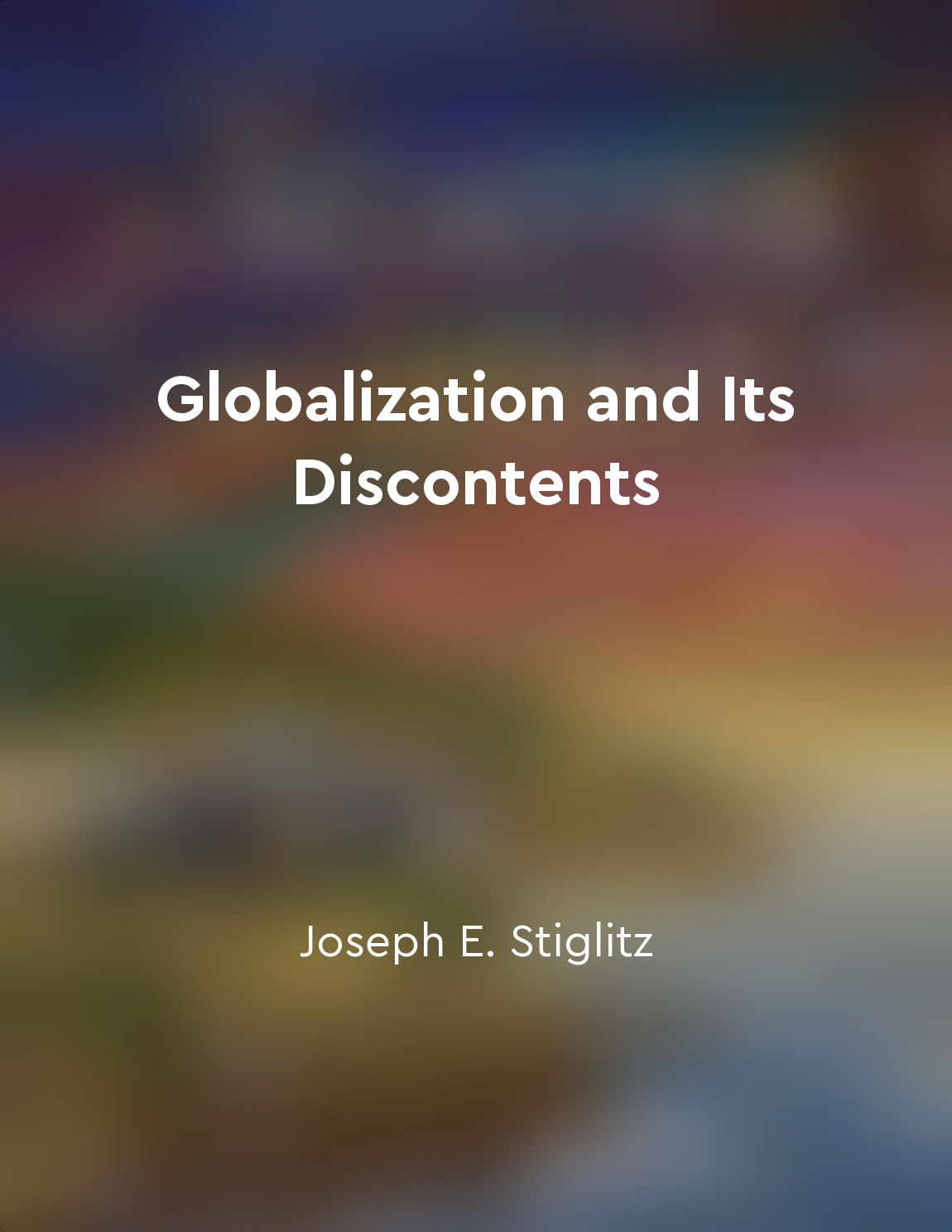Audio available in app
Developing countries face challenges in global trade from "summary" of International Economics by Robert Carbaugh
Developing countries are confronted with numerous obstacles when it comes to participating in global trade. One of the primary challenges they face is the lack of infrastructure to support efficient trade operations. In many developing nations, inadequate transportation systems, ports, and communication networks hinder the smooth flow of goods and services across borders. This lack of infrastructure not only increases transaction costs but also reduces the overall competitiveness of these countries in the global marketplace. Another major issue for developing countries is the limited access to capital and technology. Without sufficient financial resources and technological capabilities, it becomes difficult for these nations to modernize their industries and improve their production processes. As a result, they often find themselves unable to meet the quality and quantity standards demanded by international markets. This further hampers their ability to compete with more advanced economies and expand their share of global trade. Furthermore, developing countries often face trade barriers imposed by developed nations, such as tariffs, quotas, and other restrictive measures. These barriers can significantly impact the ability of developing countries to export their products to foreign markets. In addition to facing trade barriers, developing countries also struggle with unfair competition from more established economies that have a stronger foothold in the global marketplace. This unequal playing field can make it challenging for developing countries to establish themselves as competitive players in international trade. Moreover, developing countries frequently encounter difficulties in complying with international trade regulations and standards. Many of these nations lack the necessary resources and expertise to navigate the complex web of rules and regulations that govern global trade. This can result in delays, higher costs, and even exclusion from lucrative markets. Without the capacity to meet these regulatory requirements, developing countries may find themselves at a significant disadvantage when trying to participate in global trade.- Developing countries face a myriad of challenges in global trade that stem from limitations in infrastructure, access to capital and technology, trade barriers, unfair competition, and compliance with international regulations. Overcoming these obstacles is essential for these nations to fully realize the benefits of participating in the global economy and achieving sustainable economic growth.
Similar Posts

Exchange rates impact global business operations
Exchange rates play a crucial role in the global business environment. They are the prices at which one country's currency can ...
Rent control
Rent control is a policy that sets limits on how much landlords can charge for renting out their properties. This is often done...
Austerity measures harm economic recovery
Austerity measures are often seen as a necessary evil in times of economic crisis. The idea is that by cutting government spend...
India's business landscape transformed rapidly
The business landscape of India underwent a rapid transformation in the course of its history. This transformation was marked b...
Monetary policy affects market stability
Monetary policy plays a crucial role in maintaining market stability. By influencing interest rates and money supply, central b...
Regulatory coordination improves policy coherence
The concept of regulatory coordination improving policy coherence is essential in achieving effective and efficient regulation....
Globalization expands opportunities and connections
Globalization is like a giant web, connecting people, ideas, and resources across the globe. It is a force that propels us forw...
The doctrine of good faith is integral to trade agreements
The doctrine of good faith plays a crucial role in the realm of trade agreements. It serves as a guiding principle that underpi...
Financial inclusion can empower individuals
Financial inclusion, a key component of economic development, has the potential to empower individuals in various ways. When in...

The IMF and World Bank play a significant role in shaping globalization policies
The involvement of the IMF and World Bank in shaping globalization policies cannot be overstated. These institutions have a sig...


